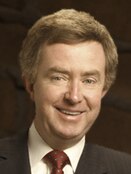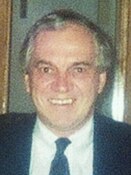
Back Kanadische Unterhauswahl 1979 German Elecciones federales de Canadá de 1979 Spanish Élections fédérales canadiennes de 1979 French Elezioni federali in Canada del 1979 Italian Канадские федеральные выборы (1979) Russian 1979年加拿大联邦大选 Chinese
This article has multiple issues. Please help improve it or discuss these issues on the talk page. (Learn how and when to remove these messages)
|
| |||||||||||||||||||||||||||||||||||||||||||||||||||||||||||||||||||||||||||||||||||
282 seats in the House of Commons 142 seats needed for a majority | |||||||||||||||||||||||||||||||||||||||||||||||||||||||||||||||||||||||||||||||||||
|---|---|---|---|---|---|---|---|---|---|---|---|---|---|---|---|---|---|---|---|---|---|---|---|---|---|---|---|---|---|---|---|---|---|---|---|---|---|---|---|---|---|---|---|---|---|---|---|---|---|---|---|---|---|---|---|---|---|---|---|---|---|---|---|---|---|---|---|---|---|---|---|---|---|---|---|---|---|---|---|---|---|---|---|
| Opinion polls | |||||||||||||||||||||||||||||||||||||||||||||||||||||||||||||||||||||||||||||||||||
| Turnout | 75.7%[1] ( | ||||||||||||||||||||||||||||||||||||||||||||||||||||||||||||||||||||||||||||||||||
| |||||||||||||||||||||||||||||||||||||||||||||||||||||||||||||||||||||||||||||||||||
 The Canadian parliament after the 1979 election | |||||||||||||||||||||||||||||||||||||||||||||||||||||||||||||||||||||||||||||||||||
| |||||||||||||||||||||||||||||||||||||||||||||||||||||||||||||||||||||||||||||||||||
The 1979 Canadian federal election was held on May 22, 1979, to elect members of the House of Commons of Canada of the 31st Parliament of Canada. It resulted in the defeat of the Liberal Party of Canada after 16 years in power, 11 of them under Prime Minister Pierre Trudeau. Joe Clark led the Progressive Conservative Party to power but with only a minority of seats in the House of Commons. The Liberals, however, beat the Progressive Conservatives in the overall popular vote by more than 400,000 votes (40.11% to 35.89%). Taking office on the eve of his 40th birthday, Clark became the youngest prime minister in Canadian history.
- ^ Pomfret, R. "Voter Turnout at Federal Elections and Referendums". Elections Canada. Elections Canada. Retrieved January 11, 2014.




